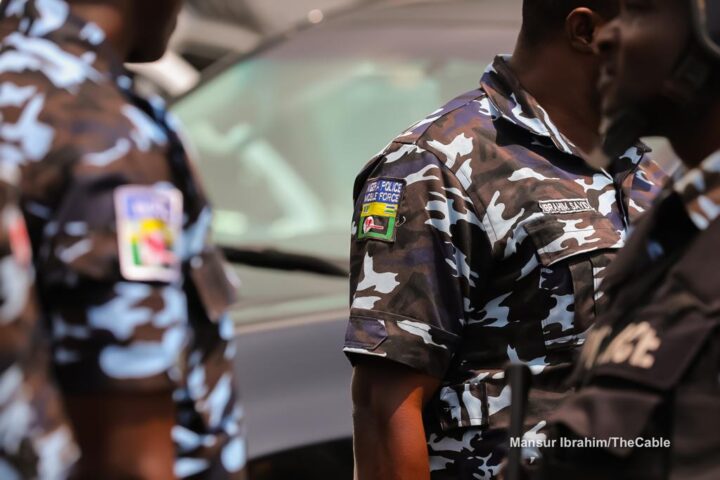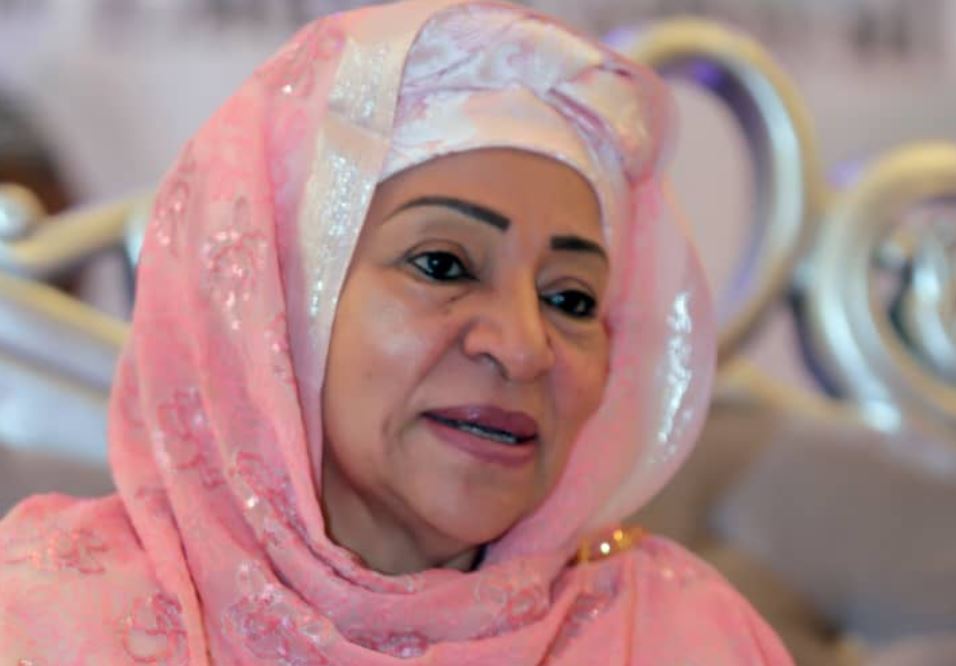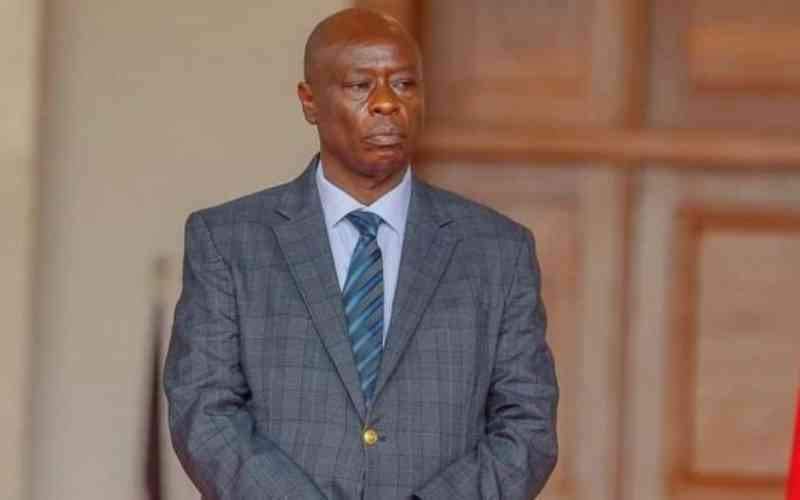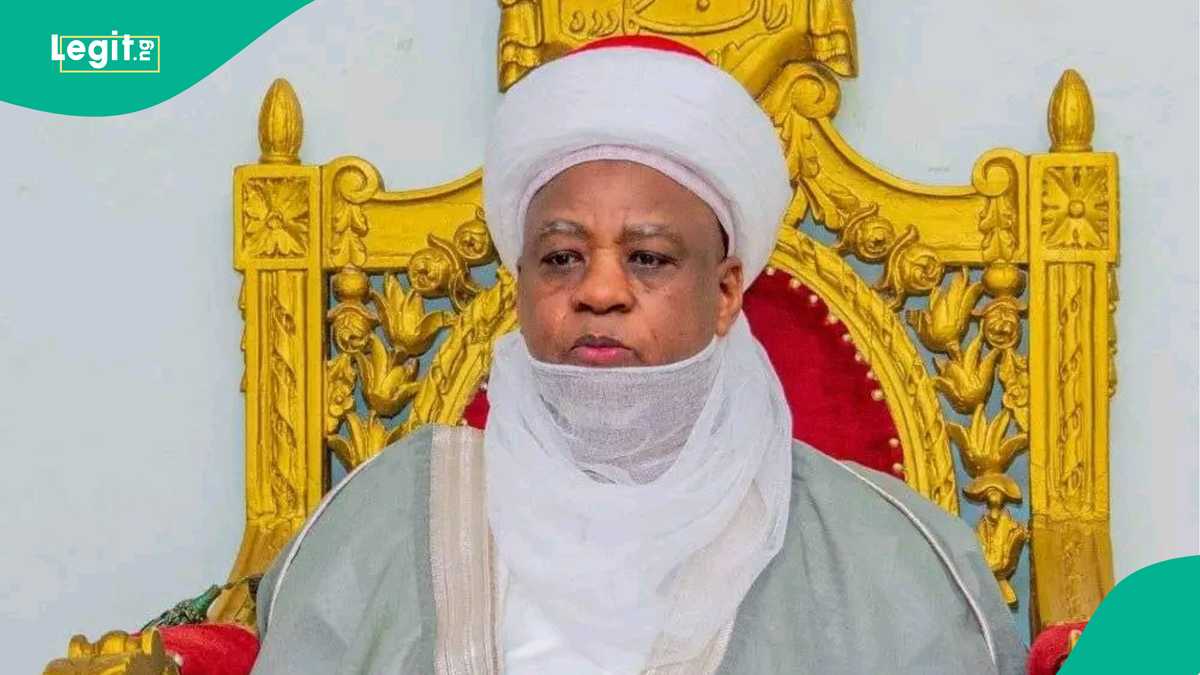Sanwo-Olu: What It Really Means When the President Refuses to Shake Your Hand, by 'Toks Oguntuga
Editor’s note: In this piece, Toks Oguntuga interprets a tense public moment between President Tinubu and Governor Sanwo-Olu. He considers what it means about loyalty, political performance, and shifting power dynamics in Lagos and beyond.
A few days ago, President Bola Ahmed Tinubu returned to Lagos, the city of his political birth, the citadel of his enduring legacy. He came to commission the first 30km of the Lagos/Calabar coastal road. At the occasion, he was greeted by a coterie of governors, allies, and courtiers. Cameras rolled. Palms were extended. Smiles exchanged. One by one, governors received the presidential handshake, a tactile endorsement of solidarity.
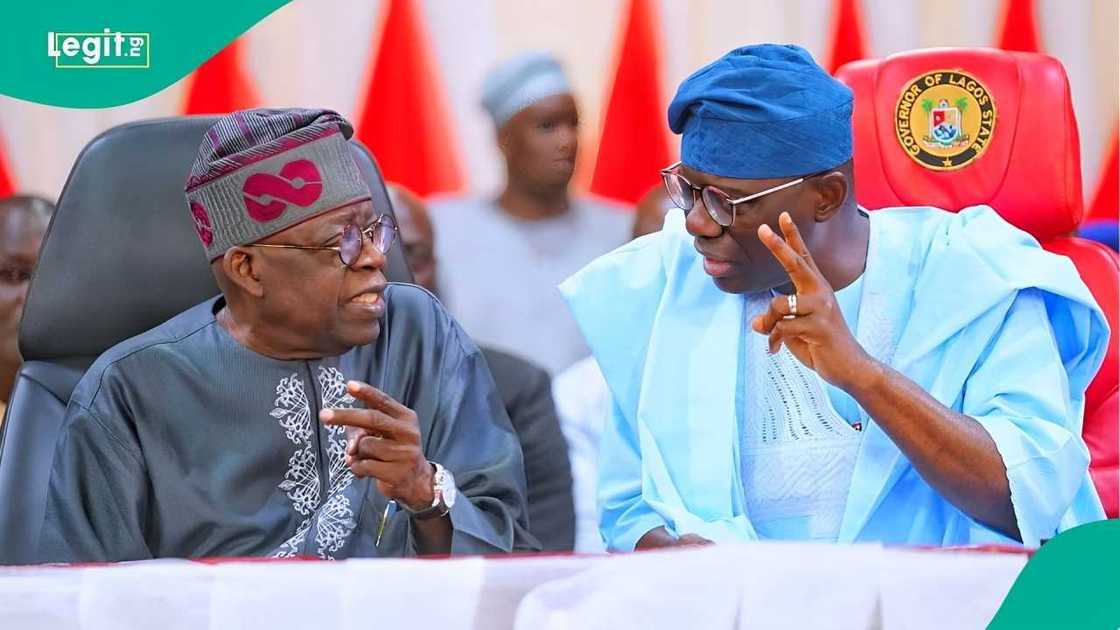
Source: Twitter
But then came a moment of conspicuous omission. The Lagos state governor’s hand remained unshaken. He never extended his hand. Neither did the president. Something surely had happened before the snub happened. Watch the video here.
But that open snub electrified the political atmosphere and ignited the rumor mill. Is there trouble in the House of Bourdillon?
As Goffman (1959) famously observed in The Presentation of Self in Everyday Life, the political stage is one of performance, where “front-stage” actions like greetings, handshakes, or smiles are carefully choreographed to manage impressions. In this performance, silence can roar, and absence can be more eloquent than presence.
In Nigeria, a high-context culture where nonverbal cues are often more significant than verbal proclamations, a withheld handshake is not an accident. It is an epistle of power.
Ayoade (2006), in his seminal reflections on the omnipotent grip of godfatherism in Nigerian politics, underscores how symbolic gestures can either consecrate allegiance or ignite political rupture. In this light, Bola Ahmed Tinubu – unquestionably the grand architect of Lagos’s enduring political hegemony – committing the conspicuous omission of publicly acknowledging Governor Babajide Sanwo-Olu during a ceremonial moment was no mere lapse of etiquette. It was a deliberate political tremor, an ominous signal that the once-cosy godfather-godson compact may have fractured under the weight of cumulative transgressions.
Whispers within Lagos’s political corridors allege that Sanwo-Olu has committed three cardinal infractions. First, he was flippant and sluggish in managing the #EndSARS crisis, a failure that sullied the legacy of his political benefactor. Second, he stood aloof as Tinubu’s business interests were razed in the inferno of protest, offering neither strategic defence nor public solidarity. And finally, Sanwo-Olu is said to have engineered the political decap!tation of Speaker Mudashiru Obasa without first securing the presidential imprimatur. Taken together, these alleged offences paint a portrait not just of political drift, but of filial rebellion in the house of Lagos power. And in Tinubu’s political universe, such disloyalty seldom goes unpunished.
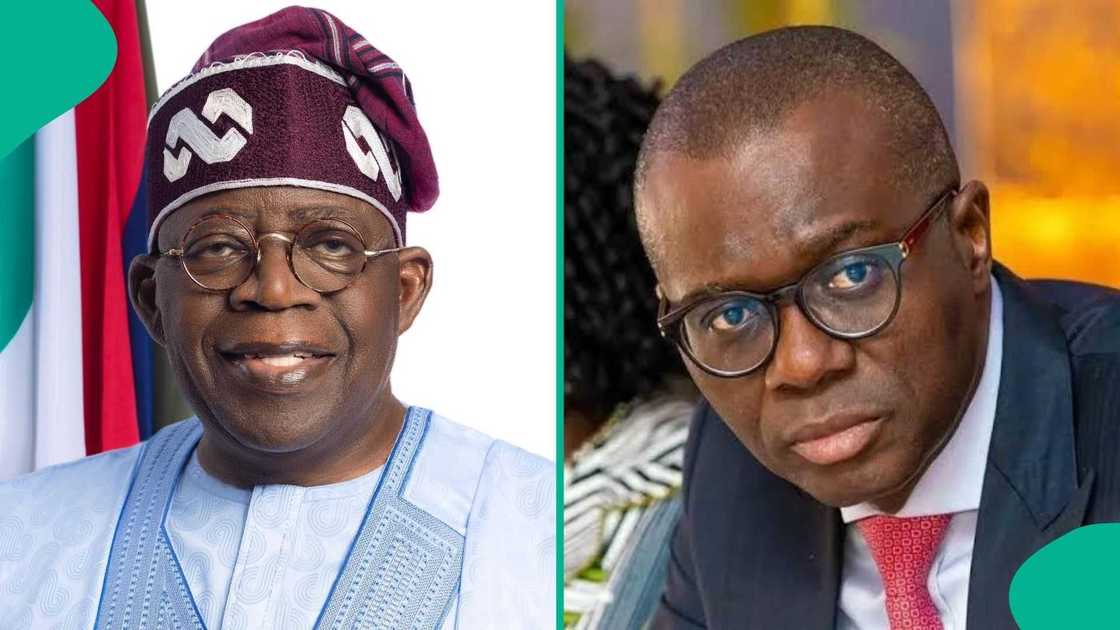
Source: Twitter
Historical echoes: When gestures spoke louder than speeches
History is replete with moments when small gestures altered the perception of political alliances. In 2017, Donald Trump refused to shake Angela Merkel’s hand during a White House meeting. Analysts saw in this omission a performative disavowal of transatlantic liberalism (Kertzer, 2017).
Between Zuma and Mbeki in the twilight of the ANC’s internal crisis, public frostiness foreshadowed the tectonic shifts that led to Mbeki’s ouster. Political temperature, in that instance, was taken by reading how long two men could avoid eye contact. Obasanjo’s serial refusal to embrace or even acknowledge Atiku Abubakar in public spaces remains one of Nigeria’s most vivid examples of body language as political warfare. As Aniche and Udegbunam (2021) argue, Nigerian political elites often deploy symbolic gestures not just to signal disagreement but to delegitimize rivals.
Lagos is no ordinary city. It is the theatre of Tinubu’s myth, his political Vatican. Thus, a snub delivered on that soil carries greater weight than a thousand words spoken elsewhere. By skipping the governor’s hand, Tinubu wasn’t just sending a signal to one man; he was broadcasting a recalibration to the political elite of the South-West, and perhaps, the entire APC hierarchy in Lagos State.
In elite political circles, as Bourdieu might remind us, symbolic capital matters. A handshake is currency. Its absence is bankruptcy.
In the realm of political theatre, the microphone is not the only instrument of communication. Gestures, especially those withheld, can carry the density of entire manifestos. The President’s snub of his godson in Lagos was not mute. It was loud, strategic, and drenched in meaning.
We may never get a press release about the incident, but I think I understand political grammar. And in that grammar, to deliberately not shake a man’s hand on such an occasion is to shake the foundations of his relevance. One can only wish Babajide Sanwo-Olu the best in his future political endeavors.
'Toks Oguntuga holds a PhD in Presidential Crisis Rhetoric and brings over ten years of experience navigating complex political and communication landscapes. He is an accomplished academic researcher, skilled in strategic communications, political analysis, and speechwriting.
Disclaimer: The views and opinions expressed here are those of the author and do not necessarily reflect the official policy or position of Legit.ng.
PAY ATTENTION: Сheck out news that is picked exactly for YOU ➡️ find the “Recommended for you” block on the home page and enjoy!
Source: Legit.ng
